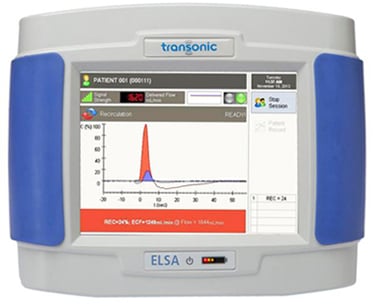Recommend frequent use of the ELSA system for recirculation, oxygenator blood volume and delivered flow measurements.
The Extracorporeal Life Support Assurance (ELSA) monitor improves patient care and optimizes ECMO therapy by measuring delivered blood flow, oxygenator blood volume and recirculation.
We recently surveyed 40 healthcare providers (including perfusionists and intensivists) from seven countries. Our goal was to better understand how they use the ELSA monitor to support patient care.

Recommend frequent use of the ELSA system for recirculation, oxygenator blood volume and delivered flow measurements.
Nearly all the clinicians surveyed use the ELSA monitor to support patients on extracorporeal membrane oxygenation. Out of the 40 clinicians who responded, 11 also reported using the ELSA monitor to support cardiopulmonary bypass patients.
The ELSA system is most frequently used for adult patients, but just over half of respondents used it for neonatal and pediatric patients as well.
Measurements provided by the ELSA device give critical insights that help improve patient care.
Three-quarters of healthcare providers reported the recirculation measurements helped inform better clinical decisions for the patient, including managing pump flow, indicating hypovolemia and identifying low cardiac output.
If these measurements had not been available, it may have resulted in a consequential delay or other negative impacts for more than a third of patients.